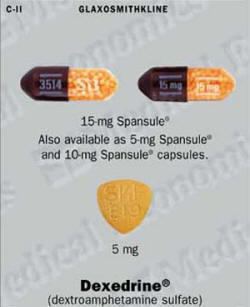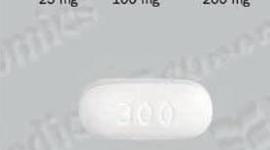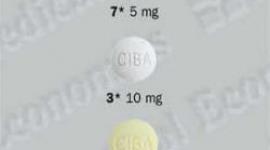Dexedrine (Dextroamphetamine) Patient Information
Find out why Dexedrine is prescribed, side effects of Dexedrine, Dexedrine warnings, effects of Dexedrine during pregnancy, more - in plain English.
Generic name: Dextroamphetamine sulfate
Brand name: Dexedrine, Dextrostat
Pronounced: DEX-eh-dreen
Dexedrine (dextroamphteamine) Full Prescription Information
Why is Dexedrine prescribed?
Dexedrine, a stimulant drug available in tablet or sustained-release capsule form, is prescribed to help treat the following conditions:
- Narcolepsy (recurrent "sleep attacks")
- Attention Deficit Hyperactivity Disorder. (The total treatment program should include social, psychological, and educational guidance along with Dexedrine.)
Most important fact about Dexedrine
Because it is a stimulant, this drug has high abuse potential. The stimulant effect may give way to a letdown period of depression and fatigue. Although the letdown can be relieved by taking another dose, this soon becomes a vicious circle.
If you habitually take Dexedrine in doses higher than recommended, or if you take it over a long period of time, you may eventually become dependent on the drug and suffer from withdrawal symptoms when it is unavailable.
How should you take Dexedrine?
Take Dexedrine exactly as prescribed. If it is prescribed in tablet form, you may need up to 3 doses a day. Take the first dose when you wake up; take the next 1 or 2 doses at intervals of 4 to 6 hours. You can take the sustained-release capsules only once a day.
Do not take Dexedrine late in the day, since this could cause insomnia. If you experience insomnia or loss of appetite while taking this drug, notify your doctor; you may need a lower dosage.
It is likely that your doctor will periodically take you off Dexedrine to determine whether you still need it.
Do not chew or crush the sustained-release form, Dexedrine Spansules.
Do not increase the dosage, except on your doctor's advice.
Do not use Dexedrine to improve mental alertness or stay awake. Do not share it with others.
--If you miss a dose...
If you take 1 dose a day, take it as soon as you remember, but not within 6 hours of going to bed. If you do not remember until the next day, skip the dose you missed and go back to your regular schedule.
If you take 2 or 3 doses a day, take the dose you missed if it is within an hour or so of the scheduled time. Otherwise, skip the dose and go back to your regular schedule. Never take 2 doses at once.
--Storage instructions...
Store at room temperature in a tightly closed container, away from light.
What side effects may occur when taking Dexedrine?
Side effects cannot be anticipated. If any develop or change in intensity, inform your doctor as soon as possible. Only your doctor can determine if it is safe for you to continue taking Dexedrine.
-
More common side effects of Dexedrine may include: Excessive restlessness, overstimulation
-
Other side effects may include: Changes in sex drive, constipation, diarrhea, dizziness, dry mouth, exaggerated feeling of well-being or depression, headache, heart palpitations, high blood pressure, hives, impotence, loss of appetite, rapid heartbeat, sleeplessness, stomach and intestinal disturbances, tremors, uncontrollable twitching or jerking, unpleasant taste in the mouth, weight loss
-
Effects of chronic heavy abuse of Dexedrine may include: Hyperactivity, irritability, personality changes, schizophrenia-like thoughts and behavior, severe insomnia, severe skin disease
Why should this drug not be prescribed?
Do not take Dexedrine if you are sensitive to or have ever had an allergic reaction to it.
Do not take Dexedrine for at least 14 days after taking a monoamine oxidase inhibitor (MAO inhibitor) such as the antidepressants Nardil and Parnate. Dexedrine and MAO inhibitors may interact to cause a sharp, potentially life-threatening rise in blood pressure.
Your doctor will not prescribe Dexedrine for you if you suffer from any of the following conditions:
Agitation
Cardiovascular disease
Glaucoma
Hardening of the arteries
High blood pressure
Overactive thyroid gland
Substance abuse
Special warnings about Dexedrine
Be aware that one of the inactive ingredients in Dexedrine is a yellow food coloring called tartrazine (Yellow No. 5). In a few people, particularly those who are allergic to aspirin, tartrazine can cause a severe allergic reaction.
Dexedrine may impair judgment or coordination. Do not drive or operate dangerous machinery until you know how you react to the medication.
There is some concern that Dexedrine may stunt a child's growth. For the sake of safety, any child who takes Dexedrine should have his or her growth monitored.
Possible food and drug interactions when taking Dexedrine
If Dexedrine is taken with certain foods or drugs, the effects of either could be increased, decreased, or altered. It is especially important to check with your doctor before combining Dexedrine with the following:
- Substances that dampen the effects of Dexedrine:
Ammonium chloride
Chlorpromazine (Thorazine)
Fruit juices
Glutamic acid hydrochloride
Guanethidine
Haloperidol (Haldol)
Lithium carbonate (Eskalith)
Methenamine (Urised)
Reserpine
Sodium acid phosphate
Vitamin C (as ascorbic acid) - Substances that boost the effects of Dexedrine:
Acetazolamide (Diamox)
MAO inhibitors such as Nardil and Parnate
Propoxyphene (Darvon)
Sodium bicarbonate (baking soda)
Thiazide diuretics such as Diuril - Substances that have decreased effect when taken with Dexedrine:
Antihistamines such as Benadryl
Blood pressure medications such as Catapres, Hytrin, and Minipress
Ethosuximide (Zarontin)
Veratrum alkaloids (found in certain blood pressure drugs) - Substances that have increased effect when taken with Dexedrine:
Antidepressants such as Norpramin
Meperidine (Demerol)
Norepinephrine (Levophed)
Phenobarbital
Phenytoin (Dilantin)
Special information if you are pregnant or breastfeeding
If you are pregnant or plan to become pregnant, inform your doctor immediately. Babies born to women taking Dexedrine may be premature or have low birth weight. They may also be depressed, agitated, or apathetic due to withdrawal symptoms. Since Dexedrine appears in breast milk, it should not be taken by a nursing mother.
Recommended dosage for Dexedrine
Take no more Dexedrine than your doctor prescribes. Intake should be kept to the lowest level that proves effective.
NARCOLEPSY
Adults
The usual dose is 5 to 60 milligrams per day, divided into smaller, equal doses.
Children
Narcolepsy seldom occurs in children under 12 years of age; however, when it does, Dexedrine may be used. .
The suggested initial dose for children between 6 and 12 years of age is 5 milligrams per day. Your doctor may increase the daily dose in increments of 5 milligrams at weekly intervals until it becomes effective.
Children 12 years of age and older will be started with 10 milligrams daily. The daily dosage may be raised in increments of 10 milligrams at weekly intervals until effective. If side effects such as insomnia or loss of appetite appear, the dosage will probably be reduced.
ATTENTION DEFICIT HYPERACTIVITY DISORDER
This drug is not recommended for children under 3 years of age. Children from 3 to 5 Years of Age e
The usual starting dose is 2.5 milligrams daily, in tablet form. Your doctor may raise the daily dosage by 2.5 milligrams at weekly intervals until the drug becomes effective.
Children 6 Years of Age and Older
The usual starting dose is 5 milligrams once or twice a day. Your doctor may raise the dose by 5 milligrams at weekly intervals until he or she is satisfied with the response. Only in rare cases will the child take more than 40 milligrams per day.
Your child should take the first dose when he or she wakes up; the remaining 1 or 2 doses are taken at intervals of 4 to 6 hours. Alternatively, the doctor may prescribe "Spansule" capsules that are taken once a day. Your doctor may interrupt the schedule occasionally to see if behavioral symptoms come back enough to require continued therapy.
Overdosage
An overdose of Dexedrine can be fatal. If you suspect an overdose, seek medical attention immediately.
Symptoms of an acute Dexedrine overdose may include: Abdominal cramps, assaultiveness, coma, confusion, convulsions, depression, diarrhea, fatigue, hallucinations, high fever, heightened reflexes, high or low blood pressure, irregular heartbeat, nausea, panic, rapid breathing, restlessness, tremor, vomiting.
Dexedrine (dextroamphteamine) Full Prescription Information
Detailed Info on Signs, Symptoms, Causes, Treatments of ADHD
APA Reference
Staff, H.
(2009, January 3). Dexedrine (Dextroamphetamine) Patient Information, HealthyPlace. Retrieved
on 2025, April 28 from https://www.healthyplace.com/other-info/psychiatric-medications/dexedrine-dextroamphetamine-patient-information


